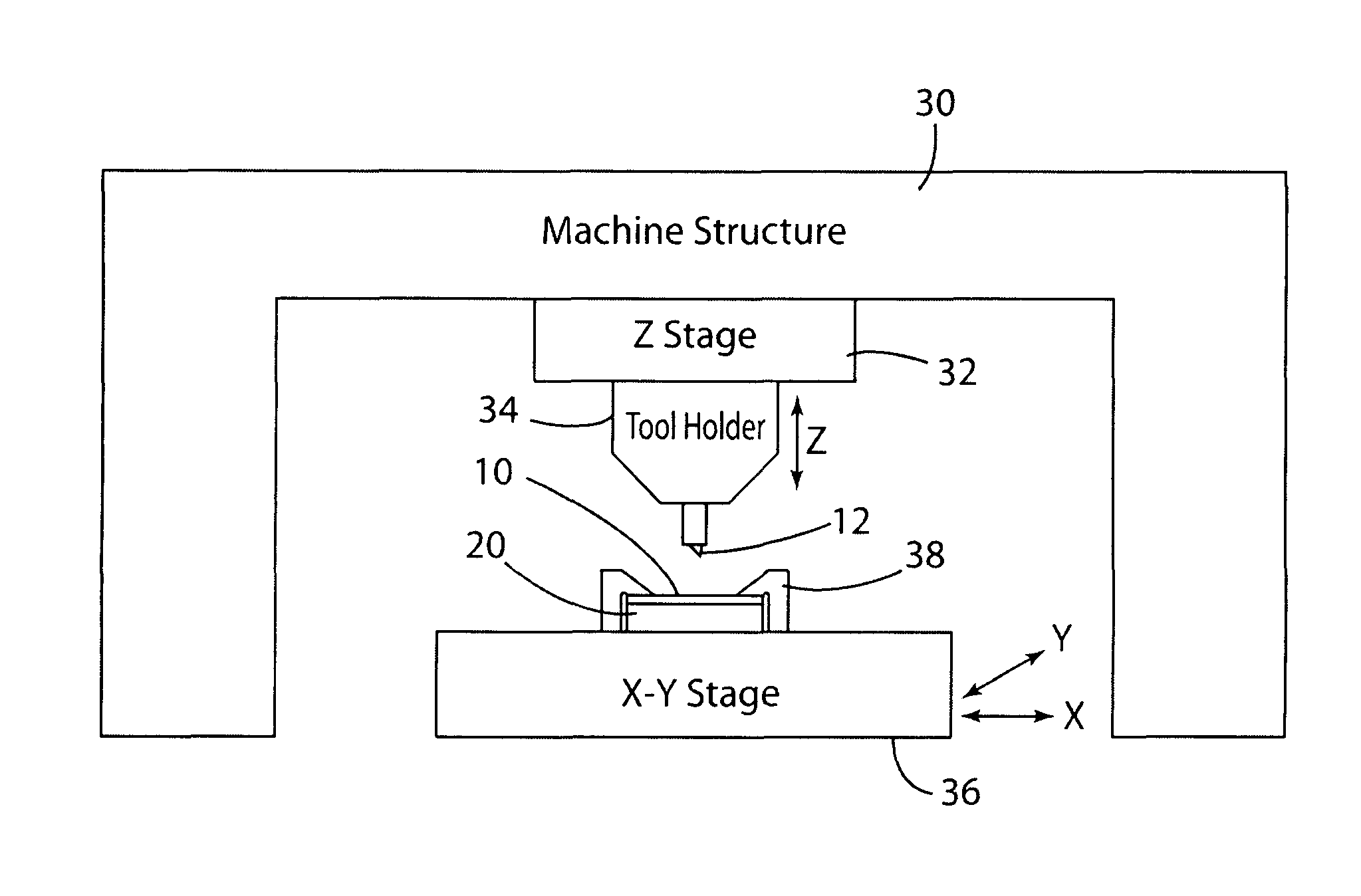Microforming method and apparatus
a micro-former and micro-tube technology, applied in the field of micro-formering methods and apparatuses, can solve the problems of unsatisfactory micro-form, unsatisfactory micro-form, and large and achieve the effect of reducing the pile-up of raised displaced materials
- Summary
- Abstract
- Description
- Claims
- Application Information
AI Technical Summary
Benefits of technology
Problems solved by technology
Method used
Image
Examples
example
Rounded Dimples on Sheet Material
[0029]Arrays of micro-tool tips were used for the creation of surface texture in thin copper sheets. Hemispherical tool tips of diameter 300 μm were depressed into the copper sheet specimen approximately 150 μm in order to create cup-shaped depressions. A second, more flexible support layer was used underneath the copper sheet to serve as a support and to allow extensive deformation of the sheet material. The choice of the support layer material was dependent upon its ability to minimize bulging of the copper sheet. The thicknesses of the copper sheet and the support material could also be selected to minimize pile up (raised regions) of displaced copper sheet material at the edges of the dimple. To simulate the process, the problem was modeled as a two-dimensional symmetric punching process as illustrated in FIG. 1. The three design variables for the optimization problem were the support layer material (m), the thickness of the copper sheet (TI), an...
PUM
| Property | Measurement | Unit |
|---|---|---|
| depth | aaaaa | aaaaa |
| thickness | aaaaa | aaaaa |
| height | aaaaa | aaaaa |
Abstract
Description
Claims
Application Information
 Login to View More
Login to View More - R&D
- Intellectual Property
- Life Sciences
- Materials
- Tech Scout
- Unparalleled Data Quality
- Higher Quality Content
- 60% Fewer Hallucinations
Browse by: Latest US Patents, China's latest patents, Technical Efficacy Thesaurus, Application Domain, Technology Topic, Popular Technical Reports.
© 2025 PatSnap. All rights reserved.Legal|Privacy policy|Modern Slavery Act Transparency Statement|Sitemap|About US| Contact US: help@patsnap.com



